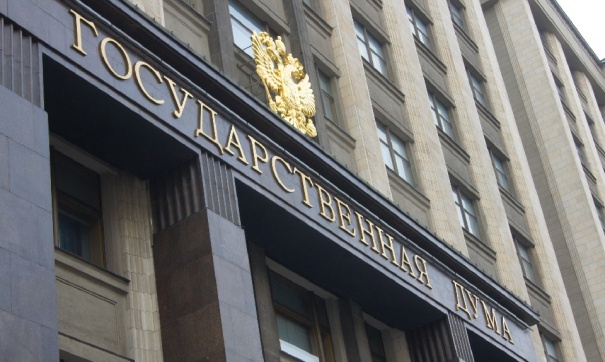Legal overviews
A new crime in the Russian Criminal Code — «Facilitating Anti-Russian Sanctions»?
- Author: Vladislav Zabrodin
- Service: Sanctions Compliance
- Date: 27.06.2019
On May 16, 2019 a draft law to add a new crime to the Russian Criminal Code: Article 281.1 “Facilitating Anti-Russian Sanctions” was submitted to the State Duma (it is not scheduled for hearing yet meaning that it might not move forward at all or be substantially altered). This new crime would punish, by imprisonment (up to 5 years), fines (up to 5 mln. rubles) and/or a ban on certain professional activities (for the term up 10 years), a number of activities that will have been deemed to have resulted in anti-Russian sanctions being imposed by a foreign country. The draft law would also amend the Russian Criminal Code to criminalize (under Article 128.1, Criminal Defamation) defamation of an entity or individual, if it resulted in sanctions against Russia or Russian citizens or entities.

The prohibited activities include the following, provided they result in or facilitate sanctions against Russia or Russian citizens or entities:
- disseminating in the mass media or through telecommunications networks legally protected information such as commercial, tax or bank secrets or any other information regarding already-sanctioned Russian persons or organizations;
- collecting, transmitting, stealing or keeping for purposes of transmittal or dissemination in the mass media or telecommunications networks legally protected information such as commercial, tax or bank secrets or other information related to Russian persons or organizations; or
- transmitting, stealing or keeping for purposes of transmittal to organizations under the jurisdiction of, or directly or indirectly controlled by, an “unfriendly” country or citizens of such a country, any commercial, tax or bank secrets or other information related to Russian persons or organizations.
The proposed law draft clarifies that the new Article 281.1 would not apply to persons who are engaged or officially working to mitigate or remove anti-Russian sanctions.
We note that under the Russian law criminal liability can be imposed on individuals only; entities potentially could be subject to administrative liability for engaging in the same prohibited activity, however, no amendments were proposed yet to the Russian Administrative Code in this regard.
The law does not clarify how law enforcement authorities or the courts should determine the causal connection between the release or transmittal of a particular piece of information and the imposition of sanctions, but given that the United States in particular typically publishes a brief justification based on some alleged facts when it imposes new sanctions through OFAC and CAATSA programs, it is a reasonable assumption that if the circumstances referred to in such a published justification can be traced back to a release of specific information, the draft bill is intended to criminalize, on the one hand, the collection and transmittal of such information, and on the other hand, its dissemination, by the media or otherwise.
Currently this draft law is not being taken very seriously. The potential consequences of such a law would be to criminalize, among other things, basic journalism, and it violates a basic principle of criminal justice by broadly characterizing the acts that could lead to criminal punishment (which include acts that are otherwise legal) based on whether such acts later led to foreign sanctions being imposed, an outcome over which the accused will probably have no control or ability to predict. The draft law would appear to be aimed at the activities of a small number of Russian and foreign citizens and organizations, working both inside Russia and internationally, who explicitly encourage Western governments to implement anti-Russian sanctions as a way of hastening political change in Russia. In practice, however, such a law could be applied with a much broader brush and would have a number of knock-on effects that could be damaging both to Russian civil society and to Russia’s international image.
Whether new legislation (in the form proposed in this draft law or in some other form) is actually approved and signed by the President will probably be driven by news over the next few-to-several months. If during this period, new anti-Russian sanctions are put into place with justifications referring to investigative reporting and/or leaked information, it becomes more likely that activities seen as facilitating Western sanctions will be criminalized.
 |
Vladislav Zabrodin Managing Partner
+7 495 970 1090 +7 812 346 7990 |
 |
Kyle Davis Of Counsel
+7 495 970 1090 +7 812 346 7990 |